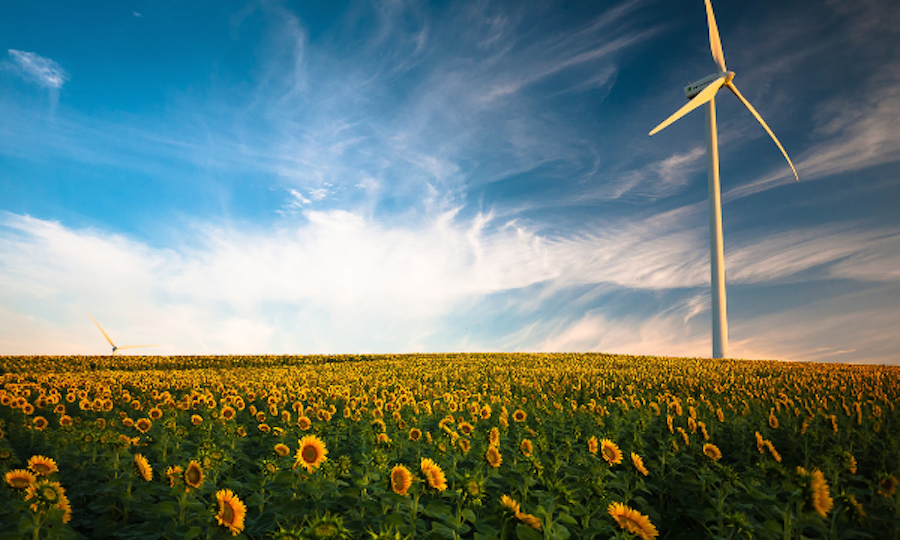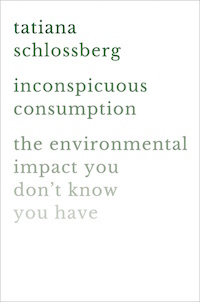We All Have the Power to Halt Climate Change

While we know what needs to happen to mitigate the effects of climate change (halting greenhouse gas emissions now and hopefully sucking some more out from the atmosphere), actually getting there is really hard, because greenhouse gas emissions are involved in almost everything we do and a certain amount of warming and change is unavoidable at this point. Few people have offered understandable solutions. We aren’t told very much about either these solutions’ effectiveness or the actual effort or expense involved in making them happen. Instead, we hear a lot about smaller-scale fixes that play to our individual desire to have an impact while the larger systemic problems are often left unexplained and unsolved. Most of us know that plastic bottles are wasteful and that we should drink from reusable ones instead. Or we are often told that we need to get all of our electricity from renewable sources within the next decade or so, which would require a major retooling of the economy, a transformation of the electrical grid, and developments in battery technology, but those undertakings are often treated as an afterthought. Somehow, it seems like these two options are given the same amount of consideration and attention. (Actually, the plastic bottle one probably gets more attention, which may be because it has a solution that’s more personally achievable and directly gratifying. Rewiring the electrical grid is not something that you or I could do alone.) We focus on the little things in the hope that they matter, so we can feel like we at least did something when the apocalypse comes. In the aggregate, these little things can matter. But it’s not really about using a plastic bottle or not using a plastic bottle (don’t think I’m letting you off the hook for your personal habits, though: we used more than 56 billion plastic bottles in the US in 20184 and we mostly don’t need to), or sipping from a paper straw or a plastic one.* It’s much bigger than those things. It’s a global problem in the most literal meaning of that word.
It’s about everything we use: what it’s made of, how it’s made, how we use it, what happens when we throw it away. I hope I can help you understand how complicated this stuff is—if something sounds simple, it probably isn’t. There are tradeoffs and consequences for almost everything we buy and use and eat, and if you hear about a policy or a product that sounds like a silver bullet, you’re probably not getting the full story.
In this book, I focused on four areas—the Internet and technology, food, fashion, and fuel—that we interact with every day, because, whether you think about it or not, the lives we’re all living have something to do with climate change and the environment.
Maybe you don’t think it’s helpful to hear how big the problem is and how we’re making it worse without thinking about it. I agree: the size of the problem and the narrative of personal responsibility is destructive! It makes us feel guilty about everything we do, even though we had no idea and weren’t in charge of setting up the cattle industry! It shouldn’t be the consumer’s responsibility to find out which type of fish is okay to eat, or which inexpensive cashmere sweater is okay to buy (which is not to say you should eat fish and wear cheap cashmere with abandon). Instead, it should be up to the company to produce cashmere responsibly or not to catch and sell fish that shouldn’t be caught and sold, since the companies making money from these activities are the experts (theoretically) who control how the product is made. That’s a change that we can demand companies make. We don’t have to buy their products if they are unwilling to at least tell us where they came from.
It may sound cheesy, but as I went through the five stages of environmental grief—denial, anger, trying to use less plastic, depression, determination—while writing this book, I came to realize in a new and powerful way that, in the end, we’re not powerless. In this country, we can vote. And that can work. In 1969, pollution in the Cuyahoga River near Cleveland, Ohio, caught fire for the thirteenth time because of the oil and industrial waste that were being dumped into the river, and there was also a massive oil spill in Santa Barbara, California. The next year, activists and politicians organized the first Earth Day, which brought 20 million Americans to the metaphorical and physical streets. One of their goals was to get people to base their vote on one issue: the environment. In the 1970 election, some of those same activists, part of Environmental Action, targeted twelve members of Congress with the worst environmental voting records, nicknaming them the “Dirty Dozen.” When seven of the twelve lost, the impact went way beyond those seven elections. It sent a message to all the other lawmakers and led directly to the passage of the Clean Air and Clean Water Acts, two of the most consequential and effective pieces of environmental legislation in history. And it is starting to happen again: as of this writing, after the 2018 midterm election, several newly elected members of the House of Representatives, many of them young women of color, along with some senators, made the passage of a Green New Deal, an actual set of policies to combat climate change, among their first priorities.
No matter what happens, we are going to have to continue to fight to make a difference. The changes we need are big and complicated, and a lot of special interests are aligned against progress, so these new elected officials might not be able to make them happen right away—we might not change the entire electrical grid in one session of Congress—but that’s no reason not to start. Making even small changes will definitely be much better than where we are. And better might not be perfect, but better is good.
As citizens, we have a responsibility to put environmentally progressive leaders in office. But it doesn’t—it can’t—end there. We have to know enough to make sense of what they’re offering, to know if it’s actually what needs to get done, and to hold them accountable for their actions. If we want to have clean electricity, grow food, manufacture goods, and get around responsibly, we have to understand what it will take to get there and we have to make it happen. Creating a context to understand those issues is what I’ve tried to do in this book, mainly by talking about our stuff. It’s up to us to create a country that takes seriously its obligations to the planet, to each other, and to the people who will be born into a world that looks different than ours has for the last 10,000 years or so. If we aren’t paying attention, others with destructive intentions or different motivations might make the decisions for us.
Essentially, what I’m describing is hard work with possibly limited success for the rest of your life. But we have to do it, and at least we will have the satisfaction of knowing we made things better.

Excerpted from the book INCONSPICUOUS CONSUMPTION: THE ENVIRONMENTAL IMPACT YOU DON’T KNOW YOU HAVE by Tatiana Schlossberg. Copyright © 2019 by Tatiana Schlossberg. Reprinted with permission of Grand Central Publishing. All rights reserved.


